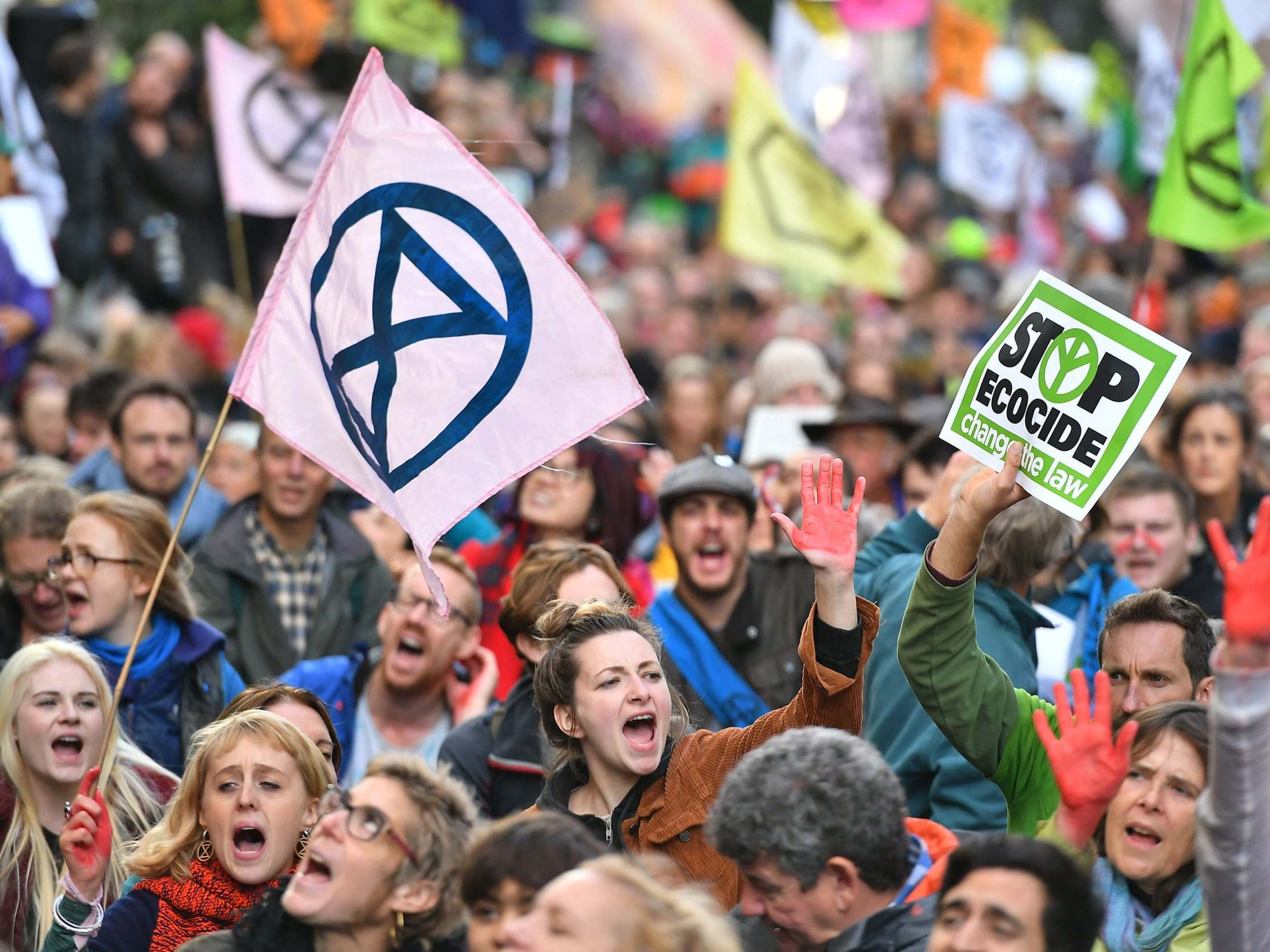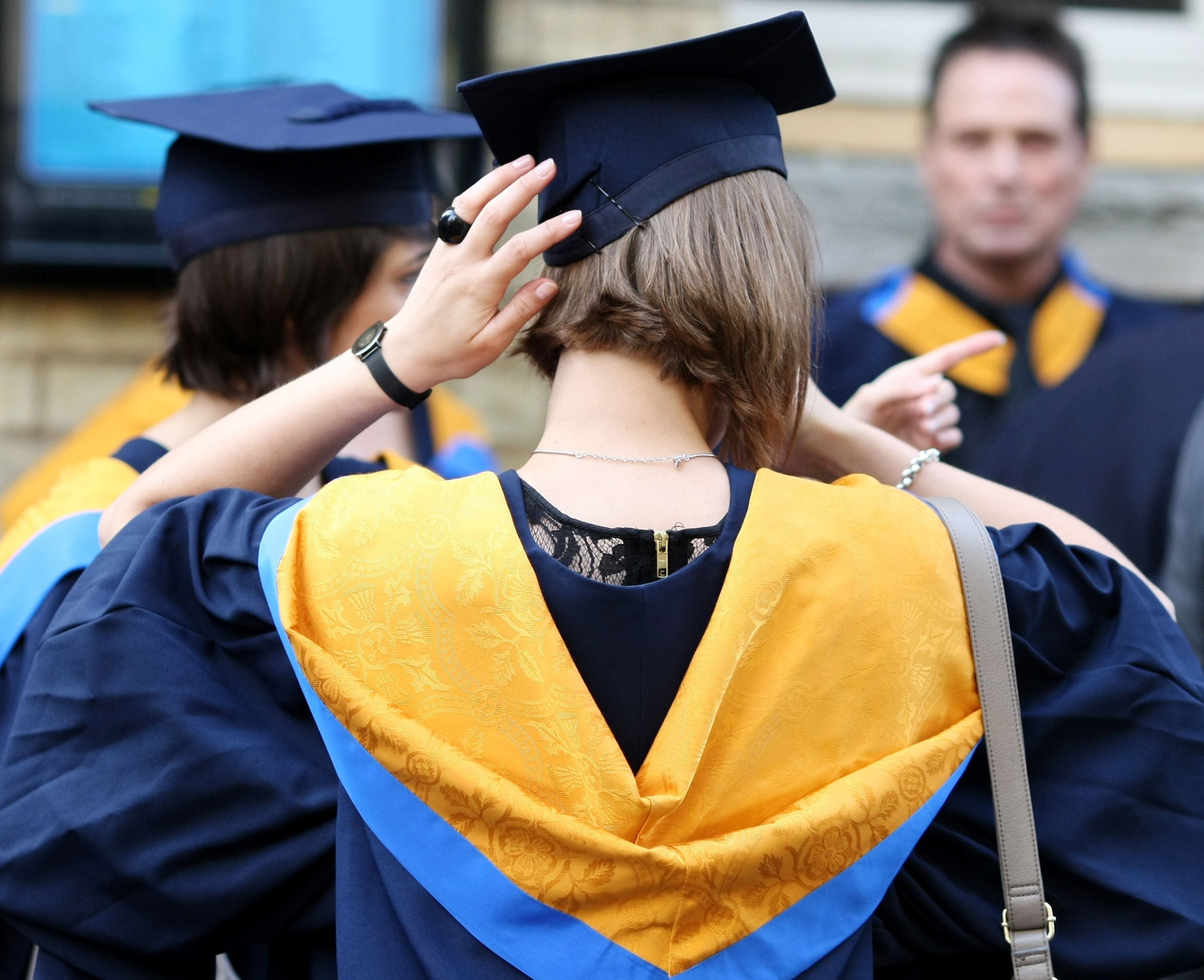General election: Drive to get millions registered to vote by 26 November deadline
One in three eligible teenagers is not signed up to take part in the 12 December election
Your support helps us to tell the story
From reproductive rights to climate change to Big Tech, The Independent is on the ground when the story is developing. Whether it's investigating the financials of Elon Musk's pro-Trump PAC or producing our latest documentary, 'The A Word', which shines a light on the American women fighting for reproductive rights, we know how important it is to parse out the facts from the messaging.
At such a critical moment in US history, we need reporters on the ground. Your donation allows us to keep sending journalists to speak to both sides of the story.
The Independent is trusted by Americans across the entire political spectrum. And unlike many other quality news outlets, we choose not to lock Americans out of our reporting and analysis with paywalls. We believe quality journalism should be available to everyone, paid for by those who can afford it.
Your support makes all the difference.Today The Independent issues a call for everyone to participate in the most important election for a generation – one that will decide the fate of Brexit and the country.
We don’t do this to back a particular outcome, but because we believe everyone’s voice should be heard.
With just a week to go to the 26 November deadline for registration to vote, more than 9 million people are believed to be missing from the electoral roll or not registered at their current address - with young people, ethnic minorities and the poor most likely to miss out on the chance to have their say.
New figures from the Electoral Commission shown that a staggering one in three eligible teenagers is not registered, compared with only 6 per cent of pensioners. Non-registration is almost as high among 20 to 24-year-olds (at 32 per cent) and among 25 to 34-year-olds (26 per cent).
Meanwhile, one in four black and Asian people are not on the electoral roll.
Record numbers of young people are believed to be among a surge in registrations since the election was called, but millions more could still be denied a vote.
The senior director of the Electoral Reform Society, Willie Sullivan, told The Independent: “Unfortunately the surge in applications to register barely scratches the surface when it comes to the up to 9.4 million thought to be missing from the electoral roll. Without a huge push this week, next month’s vote will be the ‘missing millions’ election – with young people, BME voters and many low-income voices left out of the debate.
“We need to see a Herculean effort this week to sign up those who are missing from the electoral roll. That means a major offline push to sign up those hard-to-reach groups.”
But the non-partisan Vote For Your Future campaign to get young people registered said it was not too late to get the younger generation to the ballot boxes on 12 December.
Campaign director Lara Spirit said that the rate of new registrations for under-25s has been 95 per cent higher than in the equivalent period before the 2017 election, and the group’s online ads are performing four times better than the most-watched political party messages for every pound spent.
“I would be wary of being too pessimistic,” she told The Independent. “There has been a bit of a generational role reversal.
“This is a generation that has marched about climate change, about equal rights, about Brexit, that has held school strikes. Young people have watched their parents’ and grandparents’ generations muck things up, and there is no longer a sentiment of ‘We don’t know what to do, we should leave it to the older people who are better qualified to sort it out’.”

The age divide could be crucial on election day, with young people overwhelmingly opposed to Brexit, while older generations are strongly in favour.
The Labour campaign to topple Boris Johnson in his marginal edge-of-London constituency rests on mobilising the huge student population in Uxbridge.
Similarly, no less than 77 per cent of ethnic minority voters backed Labour at the last election in 2017, although the Conservatives have strong hopes of eating into that vote on 12 December.
Craig Westwood, the Commission’s director of communication, said: “For some young people this will be their first opportunity to participate in an election, but it’s important they don’t miss the chance.
“Our research shows that young people are less likely to be registered to vote. It only takes five minutes to register to vote online – time that you might otherwise spend waiting for the kettle to boil or for a gym class to start.”
The low registration rates for young people will alarm Jeremy Corbyn, who benefited from what was dubbed a ‘youthquake’ to wipe out Theresa May’s majority in 2017.
Although that fervour has long since waned, a poll of 1,000 undergraduates carried out before the election was called found that 74 per cent oppose Mr Johnson’s signature policy of Brexit. However, there are concerns that students may miss out on their chance to have a say because the election falls just as university terms end and many will be travelling home for the holidays.

Research has also found that Muslim voters could affect the outcome in more than 30 marginal constituencies, as mosques prepare for a nationwide registration drive.
The Muslim Council of Britain (MCB) put the Labour ultra-marginal Kensington, in west London, on top of a list of 31 seats in which Muslim voters could have “high” or “medium” impact.
Also on the list is Dudley North, where the outgoing former Labour stalwart Ian Austin called on voters to back the Conservatives – and Richmond Park, in London, where the Conservative Zac Goldsmith is defending a majority of just 45.
Fourteen of the 31 seats are held by Labour, 14 by the Conservatives and three by the SNP. The MCB has no political allegiance.
The Commission is keen to emphasise how easy it is to register online, by providing only a National Insurance number and passport number.
Even people without a fixed address can register in some circumstances, if they spend “a substantial part” of their, or “have some connection” with a different address.
VFYF is planning a major drive to get the registration message out in the final week before the deadline, with messages going out through dating apps like Grindr and Bumble as well as social media platforms and volunteers knocking on doors on university campuses around the country.
Meanwhile the charity My Life My Say is working to get young people involved in democracy by hosting debates and forums.
Ms Spirit said: “Over the next week, we are hoping to have more than 40 million views of our messages by young people in key seats.
“We want to prove that when young people participate, they can be a potent electoral force and politicians have to listen to them if they want to keep their seats. I think we could be heading for a historic moment in terms of the influence of young people.”
Mr Sullivan cautioned that a portion of the recent surge in registrations may involve people who are already signed up to vote.
“Sadly, it’s likely that many of the sign-ups so far are likely to have been from already-registered voters, as there’s no way for people to check they’re already on the register,” he said.
“The system is broken: we need a ‘registration revolution’, moving towards automatic voter registration as in many other advanced democracies. In the 21st century, you shouldn’t have to ‘opt in’ to your right to vote.
“But while we do, all of us should encourage friends, family, colleagues and others to sign up. Despite an out-of-date voting system, this election will be pivotal to Britain’s future direction. Sign up, get involved and be heard.”

Join our commenting forum
Join thought-provoking conversations, follow other Independent readers and see their replies
Comments